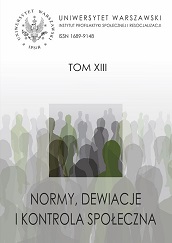Catastrophic Citizenship and Health Care in Poland
Catastrophic Citizenship and Health Care in Poland
Author(s): Peggy WatsonSubject(s): Social Sciences
Published by: Instytut Profilaktyki Społecznej i Resocjalizacji UW
Keywords: catastrophic citizenship; health care; efficiency; political economy of shame
Summary/Abstract: This essay examines the events and processes through which Polish health care changes which centre on privatisation have been pursued over the last two decades — in the face of the profound scepticism, fears and opposition of the public and despite evidence which casts significant doubts on the extent to which markets have resulted in improved health outcomes, ‘efficiency’, or access to care. I propose the term ‘catastrophic citizenship’ to denote the terms of belonging in this kind of ‘failed state’, where ‘exclusion’ can refer not to a minority, but to many, if not most citizens. The essay highlights the complex processes through which marketisers have drawn on long-standing symbolic distinctions between modernity and backwardness both to discursively legitimate the effects of markets, and to promote markets in health care through the creation of a ‘political economy of shame’. The paper identifies key policy decisions through which the gradual but inexorable dismantling of the state-socialist universal system of health care has been occurring and an increasingly privatised system put in its place. It argues that in order to secure social acquiescence to these strategic changes, reformers have obscured the political implications of them, by deploying disguising discourse when explaining their goals. The essay shows how the political spin surrounding the promotion of private health insurance has used backwardness/modernity discourse as a form of implicit intimidation in the pursuit of policies that serve particular interests and that by the same token will put new health care inequalities in place. Since the language of backwardness versus modernity justifies wealth-poverty differences, it helps keep them in place. As a form of intimidation, this form of language defines who counts as a citizen in Poland, and who can be ridiculed or ignored. As an instance of ‘symbolic violence’, the violence embodied in concepts, language and symbolic systems designed to obscure unspoken conditions of rule (Bourdieu and Passeron 1973), it is a significant part of the process of class-creation that has been taking place in Poland, amongst others through health care change.
Journal: Normy, Dewiacje i Kontrola Społeczna
- Issue Year: 2012
- Issue No: 13
- Page Range: 53-79
- Page Count: 17
- Language: English

